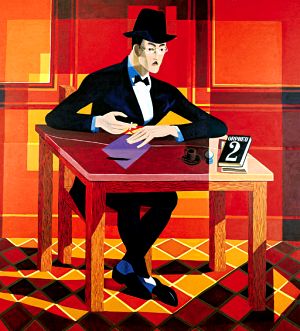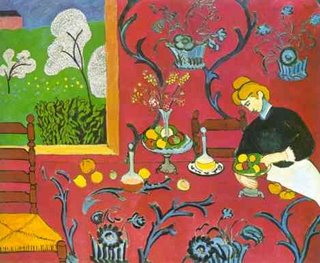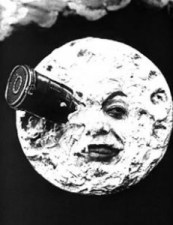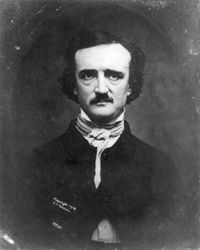AURELIA
This note was a promise that all men - yes, black men as well as white men - would be guaranteed the unalienable rights of life, liberty, and the pursuit of happiness. Martin Luther King
segunda-feira, julho 31, 2006
THE BATTLE OF BRICK LANE
The Battle of Brick Lane...
...and the failure to support Muslim feminists against a howling reactionary mob
Brick Lane is a glorious streak of neon and curry, of clubbers and fundamentalists, of old Jewish immigrant stories and new Muslim ones, in the guts of the East End. It is my home, and over the past week I have been sharing it with a little news story – and with another small sign that free speech in Britain is slowly sandpapered down by reactionary mini-mobs.
It begins with one of the most tender and beautiful British novels I know. Monica Ali’s ‘Brick Lane’ is the almost Victorian story of one woman’s liberation. Nasneen is an eighteen year-old girl shipped over from Bangladesh to London’s Bangla-Town, to marry an obese forty year old she has never met. At first she sees the East End as “a vast dump of people rotting away under a mean strip of sky,” and she is forced to spend her days cutting off her husband’s corns and trimming his nasal hair. She is discouraged from learning English or from ever leaving the house. She has been taught to be limp and passive all her life – “we are women, what can we do?” her mother always asked. She is kept drugged by superstition, told constantly it would be a sin against God to rebel.
But slowly, Nasneen realises “she could not wait for the future to be revealed, but had to make it for herself”. She learns English. She learns to ice-skate. She has an affair with a beautiful young man. She even begins to develop a more liberal strain of Islam, rejecting the dogmatic literalism of the men around her. In the end, she lets her husband pursue the immigrants’ dream-disease – Going Home Syndrome – back to Bangladesh, while she stays here, a free woman in a free country.
When the BBC decided to make this into a film, they naturally wanted to shoot on Brick Lane itself – and the troubles began. A small number of Bengali men were enraged by Ali. A woman – a woman! – had dared to take the rest of us on an intimate tour of the Bengali community. She had even tried, in her subtle, tender way, to incite a rebellion of Muslim women, to encourage them to become Nasneems and discover the joy of being free-thinking sexual women rather than being terrorised into tethered livestock hiding in cloth-prisons. They organised demonstrations to halt the filming, to shut up this uppity bitch once and for all. Their meetings talked of burning the book and of burning her.
This weekend I nipped down to the sweetshop where Abdus Saliqh has been masterminding this campaign. He is a neat man, sitting in front of a pile of newspaper cuttings, with a camera crew waiting to one side. “I have been here 37 years. It was a dark lane when we arrived,” he says. “Through our hard work, we made Brick Lane. The National Front used to come and attack us but we built it up. We are proud to live here.”
I instinctively warm to him as he says this. But when he speaks about Monica Ali, his face contorts. “She has targeted our community to get rich!” he says. “She is saying my father jumped from his ship like a monkey, that we are dirty, we are uncivilised!” I pause in incomprehension. Where in the book does it say this? “She says it! She compares us to monkeys!” One of Ali’s characters compares people from the Syleth region of Bangladesh to monkeys. Then the novel’s most sympathetic character Nasneem rebukes him, pointing out that two of Bangladesh’s great national heroes – Colonel Osmany and Shah Jalal – came from Sylhet. Don’t you see, Saliqh, that a novelist can make a character say something she doesn’t personally believe? Do you think the Holocaust survivor Elie Weisel is a Nazi because he writes dialogue for Nazi characters like “Kill the kike”? He scoffs. “It is the same thing!” he declares, waving his hand.
Salique claims to have read the book, but he keeps referring to events and passages that don’t exist, like a scene where lice fall from a character’s hair into food. But soon we get to the real reason for this rage. “Women are not fucking around in this area,” he says. “Our women, most of them, 99 percent, respect their husbands and respect their tradition.” He shakes with anger at Ali’s challenge to this ‘natural’ order. Ali’s crime has been to challenge the supremacy of Bengali men by articulating the secret experiences of Begali women. I have lived among (and loved) British Asian communities all my life – and I can attest to its veracity. More importantly, British-Bangladeshi women are seeing it for themselves: according to the Brick Lane bookshop, thousands of women hidden behind veils are buying the Bengali language version and reading it in samizdat.
This is not new. Over the past few years, there has been a cascade of protests by ultra-conservatives within Europe’s immigrant communities trying to silence women from their own neighbourhoods who are bravely calling for change. It’s not just Monica Ali. Gurpreet Kaur Bhatti’s play Bezhti was stopped by a Sikh fundamentalist mob. Fadela Amara receives constant threats for setting up the Muslim feminist organisation ‘Neither Whores Nor Doormats’. Ayaan Hirsi Ali is living under armed guard because she dared to make a film exposing the epidemic of domestic violence thumping Muslim women in the Netherlands. (The director was decapitated).
The logic of multiculturalism has made it hard for these thugs to be challenged. Multiculturalism treats immigrant communities as homogenous blocks, represented by elderly, reactionary “community spokesmen”. It has created the bizarre situation where the often-great feminist Germaine Greer has ended up siding with the patriarchal protestors as the keepers of authentic Bengali culture against the carping feminists. Yet in reality, immigrant communities are diverse, clashing cacophonies like everyone else. As the great Amarya Sen has been arguing, we should ditch the outdated idea of multiculturalism and support the progressive wings of all and any communities.
All along Brick Lane I find people who view Saliqh and his tiny band of protestors as an embarrasment. Jamal Abdul Quayam, co-owner of Taj Stores, the oldest Bengali shop on Brick Lane, calls him “a big-mouth who wants publicity,” adding, “It is uneducated people like this who stop the progress of our community.” Amzal Hussain, whose restaurant is only a few doors from Saliqh’s shop, says, “I believe in free speech. It is why I love this country, and why many Bengalis do. I would be very happy for the film to be made in my restaurant.”
But this sane Bengali majority has been ignored. The filming on Brick Lane has been stopped. Salique brags about his victory. This is only a small infringement – the film will be made elsewhere – but the pattern is yet again affirmed. Instead of holding open the institutions of a free society to support these women as they change their communities, we are allowing reactionaries to intimidate them with threats of force. Bezhti is now unstageable. Hirsi Ali has been driven from Europe.
In London, the police have begun to defend free speech only selectively, telling people under threat from foaming fundamentalist fringes that they “cannot guarantee their security”. When a Muslim man held up the Mohammed cartoons at a Free Speech rally in London earlier this year to demonstrate his support for free speech, he was actually arrested for a “public order disturbance”. When my friends at the Liberal magazine printed the cartoons, they were told by the police they were on their own. What right have the police to decide to abandon chunks of the population to fanatics? Why did they not guarantee the safe passage of camera crews on Brick Lane?
The Battle of Brick Lane has been another small deflating pin-prick for our free speech – and for some of the bravest women in Britain.
...and the failure to support Muslim feminists against a howling reactionary mob
Brick Lane is a glorious streak of neon and curry, of clubbers and fundamentalists, of old Jewish immigrant stories and new Muslim ones, in the guts of the East End. It is my home, and over the past week I have been sharing it with a little news story – and with another small sign that free speech in Britain is slowly sandpapered down by reactionary mini-mobs.
It begins with one of the most tender and beautiful British novels I know. Monica Ali’s ‘Brick Lane’ is the almost Victorian story of one woman’s liberation. Nasneen is an eighteen year-old girl shipped over from Bangladesh to London’s Bangla-Town, to marry an obese forty year old she has never met. At first she sees the East End as “a vast dump of people rotting away under a mean strip of sky,” and she is forced to spend her days cutting off her husband’s corns and trimming his nasal hair. She is discouraged from learning English or from ever leaving the house. She has been taught to be limp and passive all her life – “we are women, what can we do?” her mother always asked. She is kept drugged by superstition, told constantly it would be a sin against God to rebel.
But slowly, Nasneen realises “she could not wait for the future to be revealed, but had to make it for herself”. She learns English. She learns to ice-skate. She has an affair with a beautiful young man. She even begins to develop a more liberal strain of Islam, rejecting the dogmatic literalism of the men around her. In the end, she lets her husband pursue the immigrants’ dream-disease – Going Home Syndrome – back to Bangladesh, while she stays here, a free woman in a free country.
When the BBC decided to make this into a film, they naturally wanted to shoot on Brick Lane itself – and the troubles began. A small number of Bengali men were enraged by Ali. A woman – a woman! – had dared to take the rest of us on an intimate tour of the Bengali community. She had even tried, in her subtle, tender way, to incite a rebellion of Muslim women, to encourage them to become Nasneems and discover the joy of being free-thinking sexual women rather than being terrorised into tethered livestock hiding in cloth-prisons. They organised demonstrations to halt the filming, to shut up this uppity bitch once and for all. Their meetings talked of burning the book and of burning her.
This weekend I nipped down to the sweetshop where Abdus Saliqh has been masterminding this campaign. He is a neat man, sitting in front of a pile of newspaper cuttings, with a camera crew waiting to one side. “I have been here 37 years. It was a dark lane when we arrived,” he says. “Through our hard work, we made Brick Lane. The National Front used to come and attack us but we built it up. We are proud to live here.”
I instinctively warm to him as he says this. But when he speaks about Monica Ali, his face contorts. “She has targeted our community to get rich!” he says. “She is saying my father jumped from his ship like a monkey, that we are dirty, we are uncivilised!” I pause in incomprehension. Where in the book does it say this? “She says it! She compares us to monkeys!” One of Ali’s characters compares people from the Syleth region of Bangladesh to monkeys. Then the novel’s most sympathetic character Nasneem rebukes him, pointing out that two of Bangladesh’s great national heroes – Colonel Osmany and Shah Jalal – came from Sylhet. Don’t you see, Saliqh, that a novelist can make a character say something she doesn’t personally believe? Do you think the Holocaust survivor Elie Weisel is a Nazi because he writes dialogue for Nazi characters like “Kill the kike”? He scoffs. “It is the same thing!” he declares, waving his hand.
Salique claims to have read the book, but he keeps referring to events and passages that don’t exist, like a scene where lice fall from a character’s hair into food. But soon we get to the real reason for this rage. “Women are not fucking around in this area,” he says. “Our women, most of them, 99 percent, respect their husbands and respect their tradition.” He shakes with anger at Ali’s challenge to this ‘natural’ order. Ali’s crime has been to challenge the supremacy of Bengali men by articulating the secret experiences of Begali women. I have lived among (and loved) British Asian communities all my life – and I can attest to its veracity. More importantly, British-Bangladeshi women are seeing it for themselves: according to the Brick Lane bookshop, thousands of women hidden behind veils are buying the Bengali language version and reading it in samizdat.
This is not new. Over the past few years, there has been a cascade of protests by ultra-conservatives within Europe’s immigrant communities trying to silence women from their own neighbourhoods who are bravely calling for change. It’s not just Monica Ali. Gurpreet Kaur Bhatti’s play Bezhti was stopped by a Sikh fundamentalist mob. Fadela Amara receives constant threats for setting up the Muslim feminist organisation ‘Neither Whores Nor Doormats’. Ayaan Hirsi Ali is living under armed guard because she dared to make a film exposing the epidemic of domestic violence thumping Muslim women in the Netherlands. (The director was decapitated).
The logic of multiculturalism has made it hard for these thugs to be challenged. Multiculturalism treats immigrant communities as homogenous blocks, represented by elderly, reactionary “community spokesmen”. It has created the bizarre situation where the often-great feminist Germaine Greer has ended up siding with the patriarchal protestors as the keepers of authentic Bengali culture against the carping feminists. Yet in reality, immigrant communities are diverse, clashing cacophonies like everyone else. As the great Amarya Sen has been arguing, we should ditch the outdated idea of multiculturalism and support the progressive wings of all and any communities.
All along Brick Lane I find people who view Saliqh and his tiny band of protestors as an embarrasment. Jamal Abdul Quayam, co-owner of Taj Stores, the oldest Bengali shop on Brick Lane, calls him “a big-mouth who wants publicity,” adding, “It is uneducated people like this who stop the progress of our community.” Amzal Hussain, whose restaurant is only a few doors from Saliqh’s shop, says, “I believe in free speech. It is why I love this country, and why many Bengalis do. I would be very happy for the film to be made in my restaurant.”
But this sane Bengali majority has been ignored. The filming on Brick Lane has been stopped. Salique brags about his victory. This is only a small infringement – the film will be made elsewhere – but the pattern is yet again affirmed. Instead of holding open the institutions of a free society to support these women as they change their communities, we are allowing reactionaries to intimidate them with threats of force. Bezhti is now unstageable. Hirsi Ali has been driven from Europe.
In London, the police have begun to defend free speech only selectively, telling people under threat from foaming fundamentalist fringes that they “cannot guarantee their security”. When a Muslim man held up the Mohammed cartoons at a Free Speech rally in London earlier this year to demonstrate his support for free speech, he was actually arrested for a “public order disturbance”. When my friends at the Liberal magazine printed the cartoons, they were told by the police they were on their own. What right have the police to decide to abandon chunks of the population to fanatics? Why did they not guarantee the safe passage of camera crews on Brick Lane?
The Battle of Brick Lane has been another small deflating pin-prick for our free speech – and for some of the bravest women in Britain.
.
quarta-feira, julho 19, 2006
O PESSOA TIRANO
Fernando Pessoa: Ofelinha, que me diz a um Orpheu fresquinho?
Ofelia: Eram dois Orpheus, se faz favor
Empregado da Brasileira do Chiado: Orpheus nao temos, minha senhora.
Fernando Pessoa: Entao eram dois copinhos de vinho branco.
Ofelia: Eram dois Orpheus, se faz favor
Empregado da Brasileira do Chiado: Orpheus nao temos, minha senhora.
Fernando Pessoa: Entao eram dois copinhos de vinho branco.

Ofelia: Oh Fernando, diga la ao Almada que da proxima vez que lhe fizer o retrato nao o ponha com pezinho de gesso, peuga branca e muito demode.
POIS, QUE ISRAEL SEMPRE FEZ TANTO PARA PROMOVER A EXISTENCIA DE UM ESTADO PALESTINIANO.
Isolado desde 1947, quando as Nações Unidas decidiram pela criação de dois estados na região (um israelita, outro árabe) Israel não enfrenta apenas a provocação deliberada ou pontual do Hamas e do Hezbollah. Essa provocação tem sido permanente e é ela a razão de não existir na região um estado palestiniano livre
Francisco Jose Viegas in JN
Francisco Jose Viegas esta cada vez mais parecido com Diotalevi, aquela personagem d'O Pendulo de Foucault que queria ser judeu desse la por onde desse. Parece que o nosso insigne escritor ainda nao se apercebeu destes quatro pequenos factos:
Professar uma religiao nao implica a cessacao de todo o juizo critico-ate ja houve catolicos, essas parangonas do obscurantismo, que foram chegando a essa conclusao ao longo dos seculos
Apodar de "idiota" qualquer um que nao partilhe os nossos pontos de vista nao e um argumento valido numa discussao
Condenar as accoes de um interveniente num conflito nao significa que se esteja a apoiar incondicionalmente ou a legitimar as posicoes e accoes das outras faccoes envolvidas
O Libano tambem tem estado a merce de grupos de interesse pro-Sirios e do Hezbollah
segunda-feira, julho 17, 2006
O LIVRO DE COZINHA
Ate agora as minhas receitas de cozinha tem estado dispersas por varios livros de proveniencia duvidosa e num canhenho cheio de dedadas e manchas de gordura- a partir hoje, passam a estar coligidas neste blog. Prometo ate revelar um dia, sujeitando-me a vendetta da minha familia materna, a famosa receita do Bolo de Nozes da D. Benvinda.
Agradeco comentarios, sugestoes e receitas dos meus queridos leitores.
Imagem:Henri Matisse, Set Table, 1908
domingo, julho 16, 2006
VOU A BANHOS

Faz de conta que estou de ferias ate Agosto.
Faz de conta que estou a passar ferias nos anos trinta numa praia inglesa com um pontao de madeira, sentada numa chaise longue bebendo cha e comendo scones e sandes de pepino na companhia de alguma personagem dum policial de Agatha Christie. Pode ser Hercule Poirot.
Boas Ferias a quem as tiver!
sábado, julho 15, 2006
sexta-feira, julho 14, 2006
THE HEARTS OF AGE

Hearts of Age
.
The Hearts of Age is the first film made by Orson Welles. The film is an eight-minute short, which he co-directed with William Vance in 1934. The film stars Welles' first wife, Virginia Nicholson, as well as Welles himself. He made the film while attending the Todd School for Boys, in Woodstock, Illinois, at the age of 19. The plot is a series of images loosely tied together, and is arguably influenced by surrealism.
Fonte: Wikipedia
Fonte: Wikipedia
OH GOD, OH DARWIN!
Some homeopathic practices tell people they need not take conventional anti-malaria drugs in high-risk parts of the world, an investigation by BBC2's Newsnight has revealed.
Instead the clinics say that their remedies are sufficient to protect against malaria.
Each year two million Britons travel to parts of the world where malaria is rife. About 2,000 of them return having contracted the disease.
In the vast majority of cases they have fallen ill because they have not taken any anti-malaria tablets.
But doctors have begun noticing some cases where patients have taken homeopathic remedies instead of licensed medicines.
Qualquer pessoa que nao consiga chegar sozinha a conclusao que se existisse algum remedio dito "natural" eficaz contra a malaria ja estaria a ser usado ha centenas de anos pelas populacoes das zonas onde grassa o anopheles faz claramente parte dos subgrupos humanos com menos de dois neuronios funcionais. Nestes casos, talvez se devesse optar pela continuacao da terapeutica holistica e homeopatica- nao se deve impedir a seleccao natural de prosseguir o seu curso e estes individuos de se juntarem aos dodos, aos Neandertais e as galinhas com dentes em algum beco sem saida da Teoria da Evolucao.
Instead the clinics say that their remedies are sufficient to protect against malaria.
Each year two million Britons travel to parts of the world where malaria is rife. About 2,000 of them return having contracted the disease.
In the vast majority of cases they have fallen ill because they have not taken any anti-malaria tablets.
But doctors have begun noticing some cases where patients have taken homeopathic remedies instead of licensed medicines.
Qualquer pessoa que nao consiga chegar sozinha a conclusao que se existisse algum remedio dito "natural" eficaz contra a malaria ja estaria a ser usado ha centenas de anos pelas populacoes das zonas onde grassa o anopheles faz claramente parte dos subgrupos humanos com menos de dois neuronios funcionais. Nestes casos, talvez se devesse optar pela continuacao da terapeutica holistica e homeopatica- nao se deve impedir a seleccao natural de prosseguir o seu curso e estes individuos de se juntarem aos dodos, aos Neandertais e as galinhas com dentes em algum beco sem saida da Teoria da Evolucao.

CRS-CONCENTRACAO DE RADIACAO SOLAR

Imagem: O quadrado grande corresponde a area total de deserto que se coberta com centrais de concentracao de energia solar permitiria suprir os gastos de energia electrica de todo o Mundo. O quadrado mais pequeno corresponde a area necessaria para cobrir o consumo de energia electrica da Uniao Europeia.
quinta-feira, julho 13, 2006
quarta-feira, julho 12, 2006
Neste momento os meus herois sao os cidadaos de Bombaim que esta manha viajaram de comboi0.
A guerra contra o terror nao e uma guerra santa. Nao sera ganha por exercitos ou por corporacoes, por spin-doctors ou opinion-makers, por presidentes que invocam o Santo Nome de Deus em Vao ou pelos seus pusilanimes aliados-vai ser ganha pelas pessoas vulgares que todos os dias vao trabalhar de comboio.
A guerra contra o terror nao e uma guerra santa. Nao sera ganha por exercitos ou por corporacoes, por spin-doctors ou opinion-makers, por presidentes que invocam o Santo Nome de Deus em Vao ou pelos seus pusilanimes aliados-vai ser ganha pelas pessoas vulgares que todos os dias vao trabalhar de comboio.
A DREAM DEFERRED
What happens to a dream deferred?
Does it dry up
like a raisin in the sun?
Or fester like a sore--
And then run?
Does it stink like rotten meat?
Or crust and sugar over--
like a syrupy sweet?
Maybe it just sags
like a heavy load.
Or does it explode?
.
Langston Hughes
.
Num dos proximos dias vou escrever um post sobre este poema
terça-feira, julho 11, 2006
Eisegesis (from the Greek εσηγεσθαι; 'to lead in') is the process of interpretation of an existing text in such a way as to introduce one's own ideas.
segunda-feira, julho 10, 2006
domingo, julho 09, 2006
SE DUVIDAS HOUVERA...
Jorge Humberto M. revela a blogosfera qual e a verdadeira finalidade da iNterNet
3 FACTOS INUTEIS QUE PODEM SER UTEIS DA PROXIMA VEZ QUE JOGAR TRIVIAL PURSUIT
 1-MNESTEROPHONIA (μνηστηροφονία), nao e uma sopa de massa e legumes, e o episodio da Odisseia em que Ulisses chacina um a um os pretendentes de Penelope
1-MNESTEROPHONIA (μνηστηροφονία), nao e uma sopa de massa e legumes, e o episodio da Odisseia em que Ulisses chacina um a um os pretendentes de Penelope.

2-Brad Pitt e Angelina Jolie sao admiradores professos de Ayn Rand
(Meu Deus, o raio da mulher ainda mexe?...)
.
 3-Os pandas tem 6 dedos (embora o polegar nao seja um verdadeiro polegar mas uma estrutura resultante do prolonagamento do osso sesamoide radial do pulso )
3-Os pandas tem 6 dedos (embora o polegar nao seja um verdadeiro polegar mas uma estrutura resultante do prolonagamento do osso sesamoide radial do pulso )
sábado, julho 08, 2006
sexta-feira, julho 07, 2006
MIRA TECNICA

Estou um bocadito abalada depois de Cambridge, do jogo de quarta e dos vetustos canos vitorianos de minha casa terem decidido rebentar en masse... e adrenalina demais para uma Joana so! Preciso de tirar um dia para andar a vaguear pela casa em camisa de noite, arrastando um balde e declamando o monologo da loucura de Ofelia a esfregona.
Acabei de telefonar ao senhorio para o por ao corrente da invocacao inicial da Iliada: "Canta oh Deusa a ira da canlizacao, (mortifera! que tantas dores trouxe ao casal Andrade-Chilro e tanta agua lancou no soalho, ficando as veneraveis tabuas como presa de fungos e bolores enquanto se cumpre a vontade de Zeus!) e parece que o senhor vai mandar em nosso auxilio toda a frota grega ...perdao, um canalizador.
No fim de semana retomaremos a emissao!
segunda-feira, julho 03, 2006
COMO FAZER UM ESTUDANTE DE DOUTORAMENTO ENTRAR EM PARAFUSO

-Ah Joana, eu provavelmente ja te devia ter dito isto... amanha em Cambridge vais ter que fazer uma apresentacao do teu trabalho...assim coisa de 10-15 minutos e 5 ou 6 slides. Nao te preocupes, o Professor P. e uma das pessoas que trabalha ha mais tempo em dupla-conveccao e de certeza que vai gostar de saber o que andas a fazer! Alias, ele ja andava a fazer investigacao ainda tu nao tinhas nascido
.
Dr D. R. M, o meu orientador de doutoramento
.
Eh Chefe, que bom! Obrigada! fantastico! Olhe, nao tem para ai um saco de papel para eu enfiar na cabeca? E que eu estou a hiperventilar e acho que me vai dar um xeliquito.
Dr D. R. M, o meu orientador de doutoramento
.
Eh Chefe, que bom! Obrigada! fantastico! Olhe, nao tem para ai um saco de papel para eu enfiar na cabeca? E que eu estou a hiperventilar e acho que me vai dar um xeliquito.
Como e que adivinhou que falar em publico e preparar coisas a ultima hora sao duas das coisas que me deixam mais stressada? Estou um bocadito palida e a suar frio, e? Por acaso nao tem Valium em casa? E que se tivesse era capaz de nao ser ma ideia trazer a caixa amanha.
domingo, julho 02, 2006
THE DAY AFTER
Hoje de manha ja nao se via nem uma bandeira nas janelas e nos carros. Na loja dos 300 aqui da zona, todos os artigos com a cruz de S Jorge estao em saldo: leve 2 pelo preco de um. As criancas ja nao saem a rua com cruzes vermelhas pintadas na cara. O dono do cafe grego pisca-nos o olho discretamente e diz que hoje os cafes sao por conta das casa...










